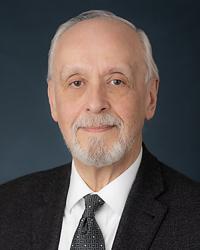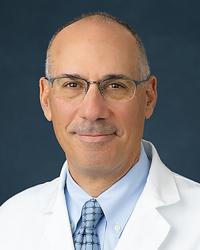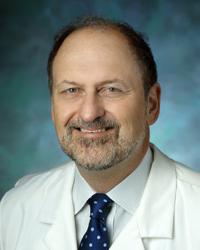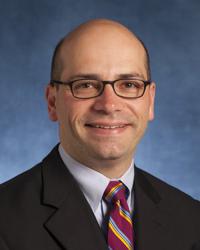Research Lab Results
-
Richard F. Ambinder Lab
Epstein-Barr virus and Kaposi's sarcoma herpesvirus are found in association with a variety of cancers. Our laboratory studies are aimed at better defining the role(s) of the virus in the pathogenesis of these diseases and the development of strategies to prevent, diagnose or treat them. We have become particularly interested in the unfolded protein response in activation of latent viral infection. Among the notions that we are exploring is the possibility that activation of virus-encoded enzymes will allow the targeted delivery of radation. In addition, we are investigating a variety of virus-related biomarkers including viral DNA, antibody responses, and cytokine measurements that may be clinically relevant.
Principal Investigator
Department
-
Richard John Jones Lab
The Richard J. Jones Lab studies normal and cancerous stem cells in order to make clinical improvements in areas such as blood and marrow transplantation (BMT). We discovered one of the most common stem-cell markers, Aldefluor, which identifies cells based on their expression of aldehyde dehydrogenase 1 (ALDH1), and have used this marker to detect and characterize normal stem cells and cancer stem cells from many hematologic malignancies. We also developed post-transplant cyclophosphamide and effective related haploidentical BMT.
-
Richard Moore Lab
Research interests in the Richard Moore Lab include clinical epidemiology, costs, cost-effectiveness and outcomes of HIV/AIDS. We recently examined whether the effect of delaying antiretroviral therapy initiation in HIV-positive adults is modified by age at entry into care.
-
Richard Rivers Lab
The Richard Rivers Lab researches vascular communication with a focus on microcirculation physiology. Our team seeks to determine how metabolic demands are passed between tissue and the vascular network as well as along the vascular network itself. Our goal is to better understand processes of diseases such as cancer and diabetes, which could lead to the development of more targeted drugs and treatment. We are also working to determine the role for inwardly rectifying potassium channels (Kir) 2.1 and 6.1 in signaling along the vessel wall as well as the role of gap junctions. -
Richard W. TeLinde Endowed Gynecologic Pathology Lab
Our scientists pursue out-of-the-box approaches at the very edge of knowledge to: 1) Elucidate the molecular/cellular/physiological landscapes of ovarian and uterine cancers. 2) Understand the earliest events in their development and mechanisms of tumor evolution/dormancy and drug resistance. 3) Deliver promises for better prevention, detection and treatment to women who have diseases or are at an increased risk to have these cancers. -
Rita Kalyani Lab
Research in the Rita Kalyani Lab examines the decreased physical functioning observed in patients with diabetes as they age. Through several ongoing epidemiological cohorts, we are investigating the association of high blood glucose and high insulin levels with accelerated muscle loss, and possible contributions to the physical disability observed in diabetes. We are currently involved in clinical studies that aim to understand the underlying mechanisms for these associations and to facilitate the development of novel strategies to prevent muscle loss and disability in people with diabetes.
-
Robert Anders Lab
Dr. Anders’ laboratory focuses on the basic processes that lead to cancer. His team approaches these questions through the use of both experimental models and examination of human tissues. His team is specifically interested in interrogating the immune microenvironment of cancer, detecting circulating cancer cells and preventing cancer metastasis. -
Robert Bollinger Lab
The key research interests in the Robert Bollinger Lab include identifying biological and behavioral risk factors for HIV transmission as well as characterizing the clinical progression and treatment of HIV and related infectious diseases. We also have a long-standing interest in optimizing health care capacity and delivery in settings with limited resources. Our work includes implementing science research projects to explore the effectiveness of initiatives such as task-shifting, clinical education, distance learning and mobile health programs as a way to improve health care in these locations.
-
Robert Brodsky Lab
Investigators in the Robert Brodsky Lab study normal and abnormal hematopoiesis, particularly mutations of the phosphatidylinositol glycan anchor biosynthesis class A (PIG-A) gene in aplastic anemia. Our team has developed a new diagnostic assay for paroxysmal nocturnal hemoglobinuria (PNH) that is based on the toxin Aaeromonas hydrophila.
-
Robert Bulat Lab
The Robert Bulat Lab performs clinical research on gastroparesis and other motility disorders.

